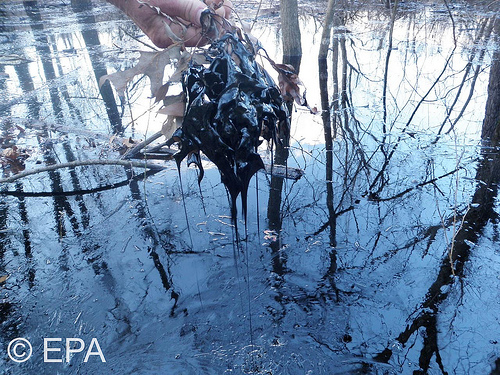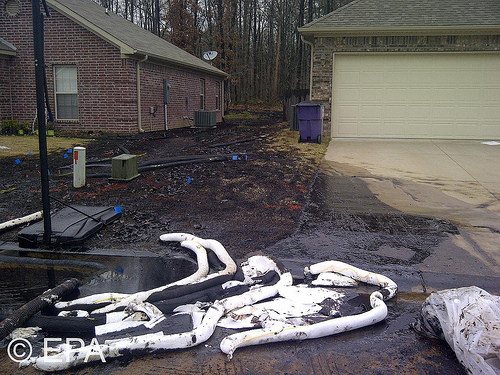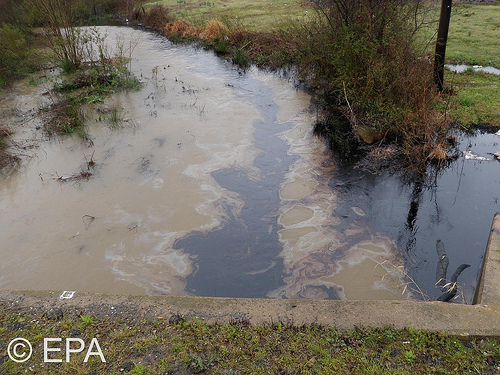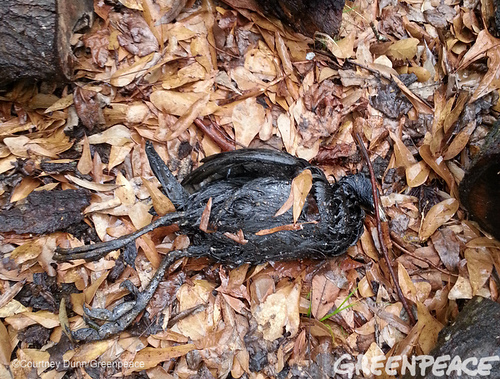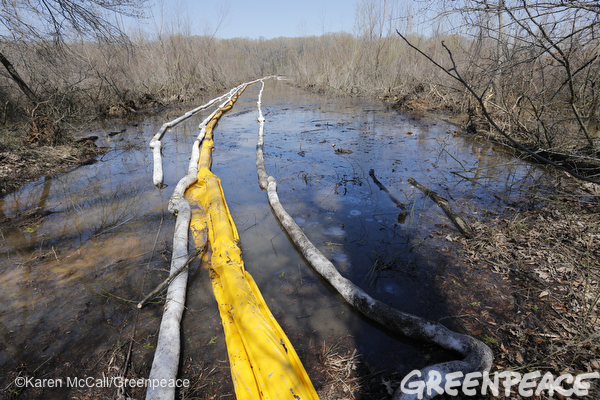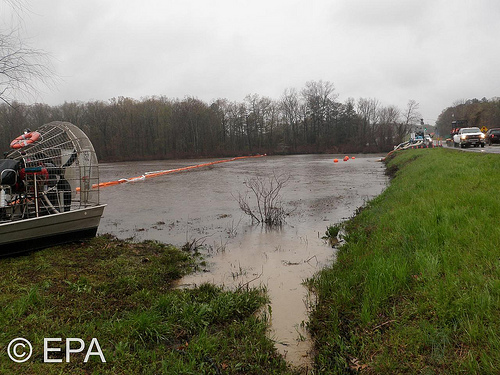More than a week after the Exxon oil pipeline spill in Arkansas, residents of Mayflower Arkansas report crude oil polluting surrounding wetlands. Local law enforcement seems to be working with Exxon establishing no-fly zones and making it difficult to document the spill and cleanup process.
In the past two weeks, we’ve seen pipeline spills and train wrecks have sent nearly 160,000 gallons of oil seeping into our land and water. The math is simple. More oil pipelines, more oil drilling, more coal plants, more coal exports and more fracking equal a completely contaminated planet.
Take action now and sayNo to Keystone– another oil pipeline is the last thing this country needs.

Eilish Palmer, a volunteer with HAWK (Helping Arkansas' Wild Kritters) holds out her finger coated in thick black oil collected from a marshy area in Mayflower, Arkansas

